Sixth Form Subjects

Further Mathematics
| Exam Board | OCR B | Ask us a question | |
| Course Duration | Two Year, Full-Time | Apply | |
| Intake Date | September |
Course Overview
This qualification builds on the knowledge gained from studying A level Mathematics and therefore you can only study A level Further Mathematics if you are also studying A level Mathematics.
Like with A Level Mathematics, studying Further Mathematics improves your career opportunities and employability skills. Anyone thinking of studying a degree in a STEM subject should consider taking Further Mathematics to at least AS Level as the additional content helps ensure a successful progression to university. Having A level Further Mathematics on your university application is a way to make it stand out. Studying A level Further Mathematics is likely to improve your grade in A level Mathematics. The extra time, additional practice, further consolidation and development of technique contribute to improved results in A level Mathematics.
Course Content and Assessment
Studying A Level Further Mathematics is fun and rewarding. It broadens your mathematical skills and promotes deeper mathematical thinking.
You will be introduced to interesting new areas of pure mathematics such as complex numbers and apply mathematics in a wider range of contexts.
We offer a two-year linear A Level with the option to complete the AS qualification at the end of the first year.
In Year 12 you will study three modules covering distinct areas of mathematics, one of which will be on pure mathematics and the other two on applied areas of mathematics. In the pure module you will learn about complex numbers, matrices, vectors and proof. Additionally, you will study two modules on either discrete mathematics, mechanics or statistics.
There is some flexibility over the other two applied modules you will study, and we try to tailor this to the cohort of students. In the statistics module you will broaden your knowledge of Statistics and build on the content covered in A level Mathematics.
An understanding of probability and risk is important in careers like insurance, medicine, engineering and the sciences. In the study of discrete mathematics, you will learn how to construct and use algorithms to find efficient solutions to real life problems, such as finding the shortest route around a network.
The techniques are important in business, logistics and computer science. The mechanics covered in Further Mathematics extends the concepts covered in A level Maths.
In Year 13 you will mostly study pure mathematics which builds on the pure content that you studied in Year 12.
You will also be introduced to new concepts such as hyperbolic trigonometry and Polar co-ordinates, as well as extending other ideas from A Level Mathematics.
You will also study an additional applied module that you didn’t study in year 12.
Assessment:
- A Level Further Mathematics is assessed by four papers: one Further Pure Mathematics paper and three
- Applied Mathematics papers.
- Further Mathematics can lead to AS qualifications if they are only studied in Year 12.
- AS level Further Mathematics is assessed by three papers containing: Further Pure Mathematics and Applied Mathematics.
Learning Methods
Content in the pipeline.
Future Pathways
Like with A Level Mathematics, studying Further Mathematics improves your career opportunities and employability skills. Anyone thinking of studying a degree in a STEM subject should consider taking Further Mathematics to at least AS Level as the additional content helps ensure a successful progression to university. Having A level Further Mathematics on your university application is a way to make it stand out. Studying A level Further Mathematics is likely to improve your grade in A level Mathematics. The extra time, additional practice, further consolidation and development of technique contribute to improved results in A level Mathematics.
If students wanted to continue their study of Further Mathematics after Advanced GCE students could follow a course in Mathematics at degree level or even continue further as a postgraduate and get involved in mathematical research.
 POSSIBLE Careeer Pathways
POSSIBLE Careeer Pathways
1. Finance and investment analysts and advisers
2. Chartered and certified accountants
3. Actuaries, economists and statisticians
4. Management consultants and business analysts
5. Data analysts
6. Business and related research professionals
7. Financial administrative occupations
8. Business sales executives
9. Financial accounts managers
10. Marketing associate professionals
Entry Requirements
A grade 7 in GCSE Mathematics.
Students not achieving this grade will need to discuss their entry onto the course with Mrs Lawrence.
Student Testimonial
Testimonial in the pipeline
Other courses of interest
- Mathematics
- Physics
- Computer Science





